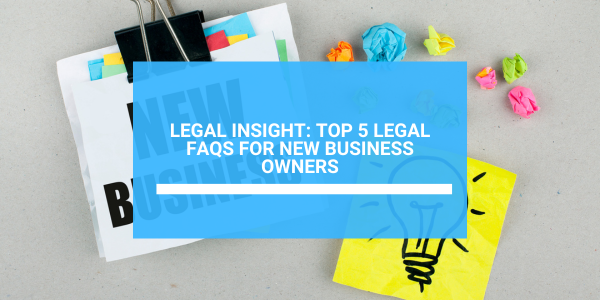The CBD business landscape is vastly changing. Coined the gold rush of our generation, many people are looking to find a way into the market. However, a CBD business poses many challenges to the inexperienced and uneducated entrepreneur. In follow up posts I will get into more detail on some of these areas, but I want to focus on protecting your CBD brand, in particular, trademarking the brand.
In the past, trademark law posed a problem for the CBD business because of the legal definition of marijuana. However, in late 2018, the legal definition of marijuana changed. In December of 2018, hemp and hemp-derived products that contain no more than 0.3% THC on a dry-weight basis were excluded from the legal definition of marijuana. Following this trend in mid-2019, the United States Patent and Trademark Office (USPTO), issued a trademark application examination guide in line with the revised definition. The guide provides details for the registration of marks used for goods and services that fall within this new exclusion from the federal definition of marijuana and are otherwise lawful under federal law.
This significant shift has led to cannabis and CDB business owners and counsel crafting new strategies to protect the IP of hemp-derived products and services. As this industry is growing at a rapid pace, this is a must for any entrepreneur or business owner in the CBD space. Before we get to the specifics of the new USPTO guidance for registering cannabis-related marks, let’s briefly discuss the regulation of Cannabis under Federal Law
CBD Business: Cannabis Regulation Under Federal Law
First, many people get confused as to what CBD is compared to cannabis. Let’s break that down. The Cannabis Sativa plant is compromised of both Cannabidiol (CBD) and THC (tetrahydrocannabinol). CBD is non-psychoactive; THC is psychoactive. CBD can be extracted from hemp plants or cannabis plants, both of which fall under the scientific definition of Cannabis Sativa.
Prior to December 2018, Federal law did not distinguish CBD from illegal cannabis. The Controlled Substances Act, 21 U.S.C.S. § 801 et seq. , prohibits manufacturing, distributing, dispensing, or possessing certain controlled substances, including marijuana, which also included all goods that contained CBD or THC derived from Cannabis Sativa. The definition of marijuana changed with the Agriculture Improvement Act of 2018 to exclude hemp and hemp-derived products that contain no more than 0.3% THC on a dry-weight basis. This change in effect lifted the federal ban on CBD derived from hemp. Word of caution, however: not all CBD-containing or hemp-derived products are necessarily lawful under federal law.
As a CBD business owner, you must also be aware of the Federal Food Drug and Cosmetic Act (FDCA) that regulates the use in foods or dietary supplements. Further, the Agriculture Improvement Act requires hemp to be produced under license or authorization by a state, territory or tribal government in accordance with a plan approved by the U.S. Department of Agriculture for the commercial production of hemp.
Now that we have some of the basics on Federal laws surrounding the Cannabis and CBD industries, let’s talk trademarks.
The requirement for Federal Trademark Registration – “Lawful Use in Commerce”
Everything has a catch, right? Even registering a trademark for a CBD related product or service has one. All trademarks to be registered must be for a product or service “lawfully used in commerce.” But what exactly does that mean? We first need to understand the definition of “commerce.
The Lanham Act (also known as the Trademark Act) defines “commerce” as “all commerce which may lawfully be regulated by Congress” . Congress happens to be a key word in the definition. Simply put, use in commerce only creates trademark rights when the use is lawful under federal law, which is regulated by Congress.
This has created a problem in the Cannabis industry when it comes to protecting intellectual property. Despite a Cannabis business selling goods or services lawful under state law, if such goods or services are not lawful under federal law, the “lawful use in commerce” definition cannot be met. Now there are a variety of strategies that can be employed to protect IP, such as using ancillary goods and services that are lawful under Federal law to register the marks or filing “intent to use” applications, which gives a 36-month window to make use of the mark in commerce.
Steps to take under the new USPTO Guide
First and foremost, if you filed an application before December 20, 2018, you have the option to amend your application to comply with the new examination guide and request a new filing date of December 20, 2018. You can also just file a new application. Despite which way you decide to go, there is one very important thing you must understand. Your identification of goods or services must specify that the CBD or hemp products for which you are seeking protection contain less than 0.3% THC. This is an ABSOLUTE MUST.
The USPTO will still refuse to register marks for the following:
- Foods, beverages, dietary supplements, or pet treats containing Hemp-derived CBD because such products have not yet been approved by the FDA.
- The commercial production of hemp unless it has been licensed or authorized by a state, territory or tribal government in accordance with a plan approved by the U.S. Department of Agriculture, which has not yet issued such regulations.
As the industry is changing, we are beginning to see the stigma lifting and lawmakers understanding the benefits to CBD and Hemp-derived products. The new guidance from the USPTO gives CBD business owners hope in protecting the fruits of their labor and the brands they are building. Please understand that this discussion is just the tip of the iceberg. There are many different strategies that can be used to protect intellectual property even if federal trademark registration is not a possibility. If you would like to discuss any of these strategies in more detail, just reach out to our firm by clicking here.
Cozza Law Group Business Law Blog
©2024 Cozza Law Group PLLC, All Rights Reserved.
Privacy Policy



